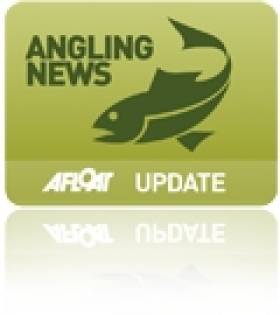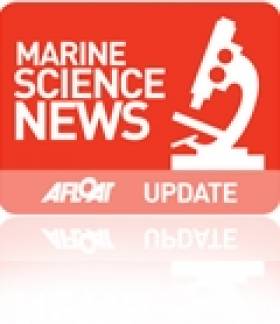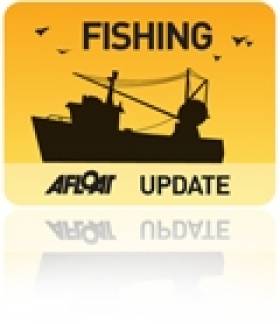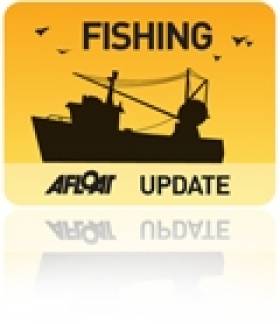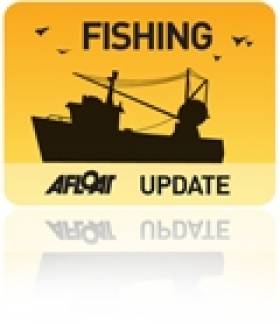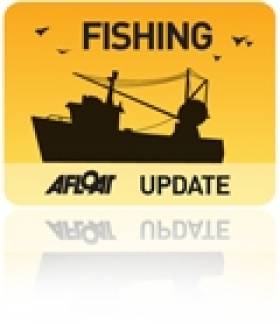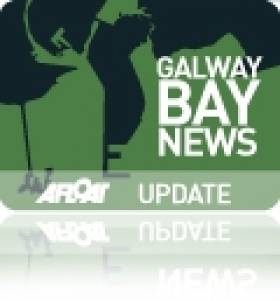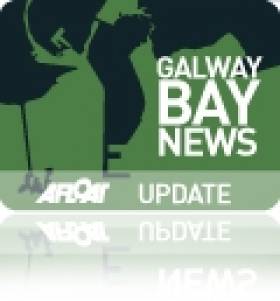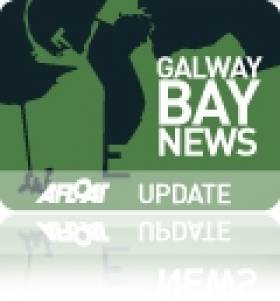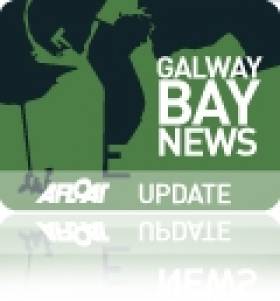Displaying items by tag: fish farm
European Anglers Call For Tighter Controls On Salmon Farms
#Angling - A resolution passed last week at the general assembly of the European Anglers Alliance (EAA), representing the interests of 3 million recreational anglers across 13 European nations, demands that all farmed Atlantic salmon should be produced in closed or contained farm systems.
The EAA also urges all fish farming nations across Europe to pursue rapid development towards sustainability to reduce the impact on wild salmon populations, and urges policy makers to use the 'precautionary principle' and 'polluter pays principle' to ease the transition towards more environmentally friendly and sustainable salmon farming practices.
According to the lobby group, escaped farmed salmon and sea lice infestations continue to have a devastating impact on wild Atlantic salmon and Europe’s sea trout populations – many of which have seen severe declines, or have been destroyed completely.
So far the focus has been to fish-out escaped farmed salmon, as well as using chemical and biological measures to remove lice in the farms - measures that have unfortunately not solved the problems.
The alliance argues that closed or contained systems, either at sea or on land, would reduce the infestation of sea lice among farmed fish, reduce the risk of farmed fish escaping into the environment and dramatically reduce the damage done by waste, pollutants and chemical residues from disease treatment entering the natural environment.
“It may come as a surprise to most people that in many rivers there are more farmed than wild salmon," said EAA secretary general Jan Kappel. "The escaped farmed fish compete with and genetically pollute our wild salmon stocks. It is well known that sea lice spread from the salmon farms and harm wild salmon stocks.
"To our greatest surprise Norway has banned recreational angling in the Hardangerfjord where salmon stocks have declined due to the impact from extensive salmon farming. This doesn’t make sense. The polluter should be managed before other legitimate and sustainable users like recreational anglers are denied access to what used to be healthy salmon stocks.”
The EAA's comes in the wake of continued controversy over the proposed Galway Bay organic salmon farm, which if green-lighted would be the largest aquaculture facility of its kind in Europe.
#FishFarm - The Marine Institute has moved to highlight what it says are a "number of inaccuracies" in a news story regarding plans for the controversial Galway Bay fish farm.
Yesterday (15 August) TheJournal.ie published an article on An Taisce's criticism of a Marine Institute-sponsored study being used to support the case for Bord Iascaigh Mhara's (BIM) planned organic salmon farm, which has faced much opposition from environmentalists and local anglers.
In a statement quoted by the news website, the State's national trust referred to a recently published research paper from the University of Toronto that is said to identify "fundamental errors" in the Marine Institute study.
The Marine Institute today hit back at TheJournal.ie's claims, stating that the study in question is a scientific paper published in the Journal of Fish Diseases and "is not connected to the BIM proposal for a fish farm in Galway Bay".
The study, it adds, is based on data collected from eight locations around the Irish coast between 2001 and 2009, and concludes that the impact of sea lice on wild salmon is "unlikely to be a significant factor" in their mortality rates.
However, last month Inland Fisheries Ireland expressed "serious concerns" over the findings - and the Marine Institute concedes that it will consider the new research from Toronto that questions the methodology of the study.
#Fishing - "Absolutely hammered" is how a Carlingford Lough oyster farmer describes the state of his business after £350,000 (€404,000) worth of his stock was destroyed by a virus in the recent heatwave.
And as the Belfast Telegraph reports, Darren Cunningham now fears financial ruin after at least 80% of his juvenile oysters were wiped out by the ostreid herpes virus, which kills the shellfish when the water temperature rises above 16 degrees.
Unfortunately for Cunningham and fellow oysterman Harold Henning, who fears a total loss of his young oysters, Stormont has no compensation scheme in place for lost stocks in Northern Ireland.
The Belfast Telegraph has more on the story HERE.
#FishFarm - Bord Iascaigh Mhara (BIM) has responded to concerns from environmental groups that an ingredient in treatments for sea lice in salmon farms poses a threat to wild marine life.
As Galway Bay FM reports, campaigners Galway Bay Against Salmon Cages - one of the groups opposed to the planned Galway Bay fish farm - say that cypermethrin, an active ingredient in veterinary medicine used to treat sea lice, is toxic to aquatic organisms.
BIM aquaculture manager Donal Maguire attempted to play down fears over the use of the pesticide, saying it has been fully tested for toxicology in the marine environment.
However, another campaign group claims BIM's position is contrary to the manufacturer's own warnings on the use of the drug.
According to FishNews.eu, Friends of the Irish Environment (FIE) cited the Irish Medicines Board's product description for cypermethrin, which states that it is "dangerous to fish and other aquatic life" and demands that the chemical "should not be allowed to contaminate water".
FIE went on to describe cypermethrin as "a biocide which kills life, not a medicine that saves lives" and as "a highly active neurotoxin" with "known effects on fish and, most sensitive of all, crustaceans such as crabs and lobsters. Bathers and watersports [enthusiasts] may also be at risk."
Earlier this month, Inland Fisheries Ireland (IFI) expressed "serious concerns" over the findings of a study on wild salmon in Ireland that claimed fish farm schemes were less harmful to wild fish than pollution and possibly even beneficial to wild catchments.
IFI is among the significant opposition to BIM's proposed organic salmon farm off the Aran Islands, a 500-hectare project that would be the largest of its kind in Europe and create hundreds of jobs in the locality.
#Fishing - The Irish Times reports that Inland Fisheries Ireland (IFI) has expressed "serious concerns" over the findings of a new study on wild salmon in Ireland.
The State agency for Ireland's fisheries argues that the study - which concluded not only that pollution has a greater impact on wild salmon numbers than fish farming, but also that salmon catchments in close proximity to aquaculture schemes were some of the best performing - is based on flawed methodology.
IFI is among the chorus of voices opposed to the planned organic salmon farm off the Aran Islands in Galway Bay - a 500-hectare project by Bord Iascaigh Mhara (BIM) that would be the largest of its kind in Europe if given the go-ahead.
Marine Minister Simon Coveney recently attempted to alleviate concerns over the controversial scheme, claiming there would be no damage to the environment or fish stocks.
However, the controversy doesn't end there, as last month celebrity chef and 'Slow Food' champion Darina Allen wrote to the minister over erroneous claims in BIM's environmental impact statement (EIS) for the project.
As reported by the Galway Independent, Allen contacted Minister Coveney to clarify that the Slow Food movement does not support fish farming projects, after references to the initiative in the EIS "seemed to create a lot of confusion".
Allen told the paper: “Many people contacted me under the perception that Slow Food endorsed the whole salmon farm thing and actually Slow Food has made no statement whatsoever on it.”
Later, Michèle Mesmain of Slow Food International confirmed that “salmon farming does not fit in any pillar of Slow Food”.
The Galway Independent has much more on the story HERE.
#FishFarm - The Galway Bay fish farm debate rolls on as Ireland's Marine Minister says there will be no damage to the environment or wild fish stocks.
Simon Coveney was speaking to Galway Bay FM last week on Bord Iascaigh Mhara's (BIM) proposals for a deep sea salmon farm off the Aran Islands.
The 500-hectare scheme would be the largest of its kind in Europe and has the potential to create hundreds of jobs in the region. A decision on BIM's licence application for the development is set to be made in the coming months.
But the plans have been opposed by conservationists, local anglers and the even the State fisheries body.
Last Wednesday 22 May, Inland Fisheries Ireland (IFI) published an FAQ on its concerns regarding the Galway Bay fish farm proposal, its own submission regarding the environmental impact statements attached to the licence application, and its reasons for avoiding a public debate on the issue.
"IFI is satisfied that its submission, which is supported by international scientific studies, clearly sets out its concerns and recommended measures for mitigation," it says.
BIM Pulls Out Of Galway Bay Fish Farm Meeting
#FishFarm - Galway Bay FM reports that Bord Iascaigh Mhara (BIM) has pulled out of a public meeting on the proposed Galway Bay deep sea fish farm scheduled for this evening (25 April).
The Sinn Féin-organised meeting at the Westwood Hotel in the city tonight was intended to be a debate hearing arguments from both sides regarding the controversial aquaculture project, according to the Galway Advertiser.
However, a statement issued by BIM - which is proposing the salmon farm scheme - claims that "recent statements from some angling groups" have made it impossible to provide a public platform for its side of the issue.
If the project goes ahead, the 500-hectare facility would be the largest of its kind in Europe. But it has faced strong opposition from local anglers and the State fisheries body Inland Fisheries Ireland over the risk posed by sea lice.
As previously reported on Afloat.ie, the proposed fish farm off the Aran Islands has even put local TDs at odds over questions of the potential benefits and hazards.
Meanwhile, the Galway Advertiser says that opposition group Galway Bay Against Salmon Cages plans to lodge their protest at the constituency office of Taoiseach Enda Kenny in Castlebar this Saturday 27 April as part of a nationwide campaign.
Groups Appeal For Clarity Over Galway Bay Fish Farm Plans
#FishFarm - Groups opposed to the controversial deep-sea fish farm in Galway Bay have written to TDs asking them to bring clarity to the growing conflict over the proposals.
As the Southern Star reports, the groups have asked for a review of the current licensing requirements for aquaculture schemes to ensure that the process is transparent and open to independent review - amid news that both local TDs and State agencies are squabbling over the issue.
"To have a single minister responsible for all these stages of an industry that has such serious pollution issues associated with it, as well as the potential to devastate valuable salmon and sea trout stocks, is inappropriate and open to abuse," argues Alec O'Donovan of Save Bantry Bay, one of the groups in an alliance that include local tourism, angling and environmental interests.
Group chairman Kieran O'Shea singled out for criticism the Department of the Marine's apparent determination to push forward with Bord Iascaigh Mhara's (BIM) fish farm plans in spite of a moratorium on further development of salmon farming three years ago at EU level.
"This not only makes a mockery of EU law but highlights a worrying lack of concern for the environment," said O'Shea.
Meanwhile, another opposition group has spoken out over a letter of support for the fish farm plans by Irish seafood producers and other businesses.
According to the Galway Independent, Brian Curran Galway Bay Against Salmon Cages (GBASC) claimed the letter - signed by 43 firms, only six of which are directly involved in food production in Galway - was a "set-up".
A spokesperson for BIM dismissed Curran's comments as being "in very poor taste" in seeking "to undermine the intentions or credibility of anyone who would go out of their way to place their support for the proposal 'on the record'."
As previously reported on Afloat.ie, the 500-hectare development off Inis Óirr in the Aran Islands would be the largest of its kind in Europe.
Squabbling State Agencies Skip Fish Farm Debate
#FishFarm - The expected debate between two State agencies at loggerheads over the proposed Galway Bay deep-sea fish farm failed to take place as planned over the weekend as neither body sent a representative.
Bord Iascaigh Mhara (BIM) and Inland Fisheries Ireland (IFI) had been expected to debate the planned 500-hectare organic salmon farm off the Aran Islands during the Galway Food Festival over the Easter weekend.
Organisers were informed at the last minute that neither agency would be involved in the public event, with BIM telling The Irish Times it did not feel it would be appropriate to discuss the matter in an open forum when negotiations were ongoing.
Both sides have differed over the potential impact on wild salmon populations in the area, with IFI citing research that damns the negative consequences of sea lice infestations in fish farms.
Despite their absence, the debate went ahead as scheduled, with local businesses on both sides of the argument expressing their views.
The Irish Times has more on the story HERE.
Councillor's Concern Over Galway Bay Fish Farm
#FishFarm - A Galway county councillor has declared his reservations over the proposed deep-water organic salmon farm off the Aran Islands, as Galway Bay FM reports.
Cllr Jim Cuddy said at this week's meeting of Galway County Council that concerns had been expressed to him by angling interests over plans for the 500-hectare aquaculture scheme in Galway Bay and its potential effects on wild salmon stocks.
His motion, which was seconded by Cllr Thomás O'Curraoin, comes in the same week as 13 seafood companies based in the City of the Tribes showed their support for the fish farm plans in letters of support to Bord Iascaigh Mhara (BIM).
As reported earlier this week on Afloat.ie, two West Galway TDs were at loggerheads over the proposals, the planning application for which is still under consideration.


























